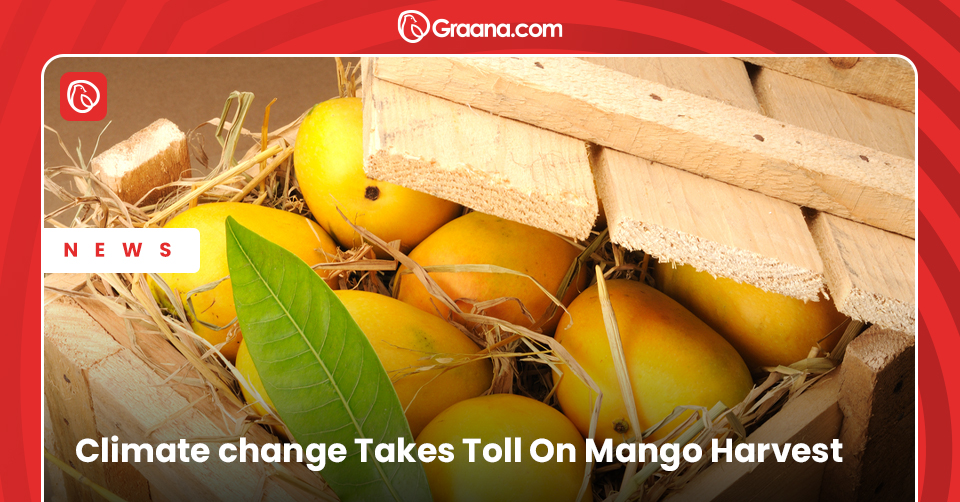
Source: Graana.com
The ongoing battle with climate change continues to weigh heavily on Pakistan’s mango production, with experts predicting a significant drop in yields for the third consecutive year. Exporters and horticulture specialists caution that the nation’s mango output may plummet by 600,000 metric tonnes this season, exacerbating concerns for both farmers and international markets.
Punjab and Sindh stand as the primary mango-producing regions, contributing 70% and 29% respectively to the national yield of 1.8 million metric tonnes. Conversely, Khyber-Pakhtunkhwa (K-P) contributes a mere 1%.
Unfavorable weather patterns threaten Punjab’s yield by an alarming 35-40%, while Sindh faces a relatively milder reduction of less than 20%.
Setting ambitious targets amidst these challenges, the All Pakistan Fruit and Vegetable Exporters Association (APFVEA) aims for 100,000 metric tonnes of exports this season, commencing on May 20th. This objective, however, hinges on diversifying markets beyond traditional boundaries, with a keen focus on value-added destinations such as China, America, Turkey, and Japan. Additionally, Iran, Afghanistan, and Central Asian states are deemed vital in attaining the export target.
Waheed Ahmed, Patron-in-Chief of APFVEA, underscores the detrimental impact of climate change on mango orchards, citing a notable reduction in production. Last season’s export target of 125,000 metric tonnes fell short, reaching only 100,000 metric tonnes. This year’s target has been revised downward, highlighting the severity of the situation. If met, the export target could yield $90 million in foreign exchange.
Ahmed emphasizes efforts to stabilize markets in Central Asian countries and Iran via Afghanistan, while simultaneously bolstering exports to China and exploring untapped markets in Australia, Japan, and America. Collaboration with the Trade Development Authority of Pakistan (TDAP) aims to promote Pakistani mangoes in Turkey and the Far East.
Despite the challenges, the value-added sector, encompassing mango processing, packaging, and warehousing, remains a significant contributor to the economy, surpassing Rs100 billion and providing employment opportunities to millions. However, rising costs and climate-induced disruptions pose formidable obstacles to sustainability.
Progressive farmers and growers from Sindh voice dissatisfaction with governmental efforts in research and development. They stress the imperative for research-based solutions, advocating for the development of new varieties and seeds resilient to changing climatic conditions. Awareness programs are urged to educate stakeholders on climate change and evolving agricultural practices.
In pursuit of enhanced yields and exports, stakeholders implore government intervention to facilitate research, supply suitable pesticides, and implement prevention programs safeguarding agriculture against climate-induced threats.
ISLAMABAD: The Capital Development Authority (CDA) has recorded a historic development expenditure of Rs25 billion…
ISLAMABAD: The federal government is set to inaugurate the Islamabad Information Technology Park on August…
Lahore, April 23, 2025 – The city of Lahore has successfully completed the construction of…
ISLAMABAD, Pakistan – April 23, 2025 – Chaaye Khana, Pakistan's popular cafe renowned for its…
ISLAMABAD: Prime Minister Shehbaz Sharif laid the foundation stone for the Murree Road underpass on…
DUBAI: Pakistani real estate developers and representatives showcased a range of commercial and residential investment…